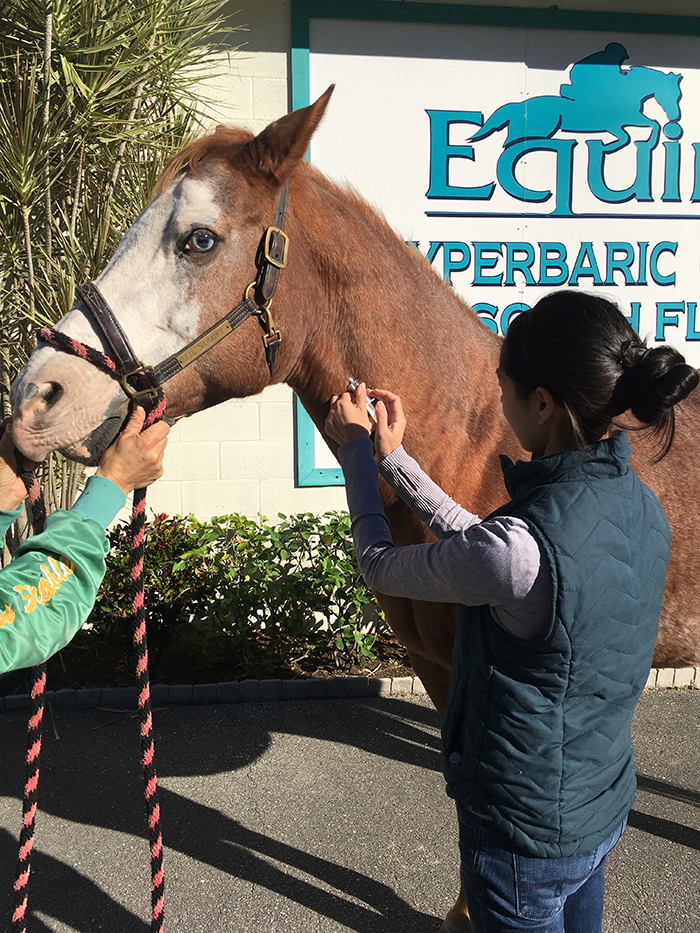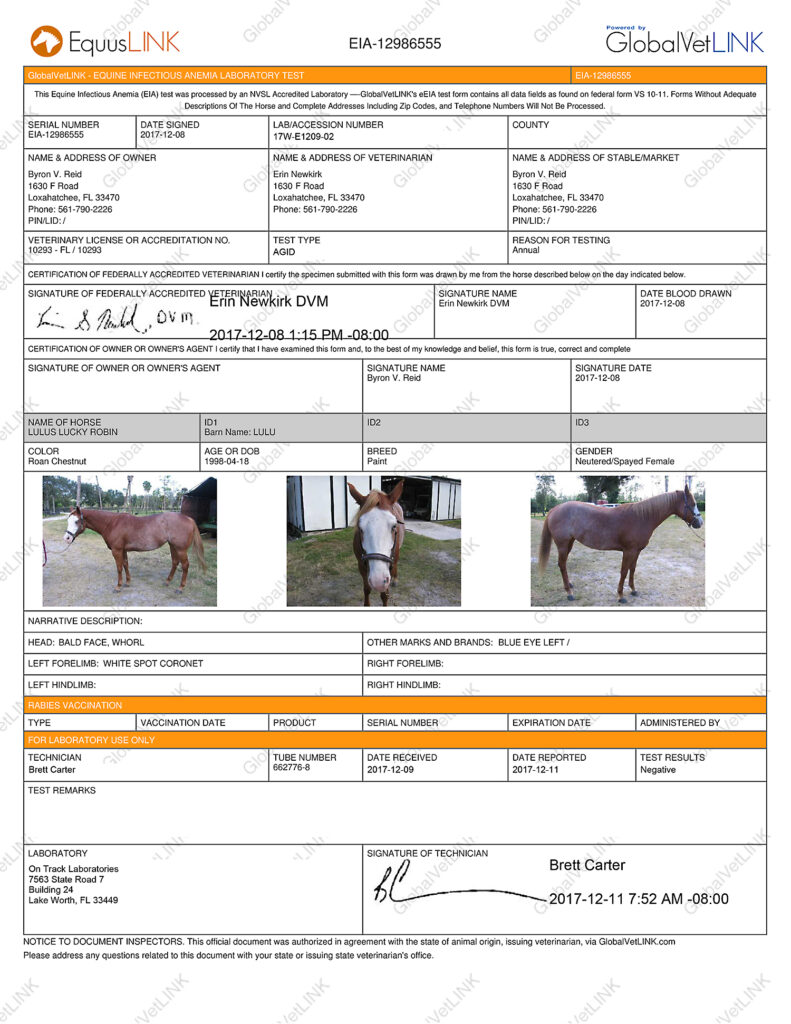
Issey Chew Chin, VMD, talks about Equine Infectious Anemia (EIA), and provides answers to many questions horse owners have about the need for annual testing.
Q. What is Equine Infectious Anemia?
Equine Infectious Anemia (EIA) is a potentially fatal viral infection which affects equids (horses, donkeys, mules and Zebras). The virus enters white blood cells, and as the body’s immune system tries to destroy the infection it may also attack its own red blood cells, causing anemia.
Q. How common is EIA?
Uncommon. According to the USDA (United States Department of Agriculture) there were 2 cases in Florida in 2017 and 80 cases in the U.S. While the numbers are low, consider all the horses traveling between states who may have been exposed.
Q. If uncommon, why the need to have a Coggins every year?
There is NO cure for Equine Infectious Anemia and the only way to accurately identify the virus is a Coggins, a blood test that detects antibodies to the disease.
EIA is mainly transmitted by blood sucking insects such as mosquitos, horse flies and deer flies. So even if your horse (or donkey, or zebra) doesn’t leave the property, they could still conceivably contract the virus at any time from insects.

Many horse shows or horse gatherings require a negative Coggins and negative Coggins’ are required when transporting horses across state lines. Each state has its own regulations regarding EIA and may require a Coggins more-or-less frequently than Florida, which is 12 months.
Testing every year is recommended and all new horses arriving on your property should have a negative Coggins within the last 12 months. If you are in an area where the incidence is high (ask your veterinarian), you should have your horse tested more than just once a year.
Q. What happens if my horse is positive?
Unfortunately, your options are extremely limited and emotionally difficult. Your horse must either be humanely euthanized or be quarantined for life. And, although quarantine is an option, EIA-positive horses will always put surrounding horses at higher risk.
Q. Won’t I know if my horse is sick?
Not necessarily. Many horses that have EIA are asymptomatic and known as “carriers”. These horses pose a major risk to the surrounding population. Other horses can show a wide range in the severity of clinical signs that may include fever, weakness/fatigue, limb edema or sometimes petechiae (red spots) on their mucous membranes. In addition, there are other diseases that can look similar to EIA, so the only way to know is the Coggins test.
Although Equine Infectious Anemia is relatively uncommon these days, it’s every horse owner’s responsibility to be aware of the disease and to have their horses tested at least once a year. By testing your horses, you are not only doing yourself a favor but the horse industry as well.

